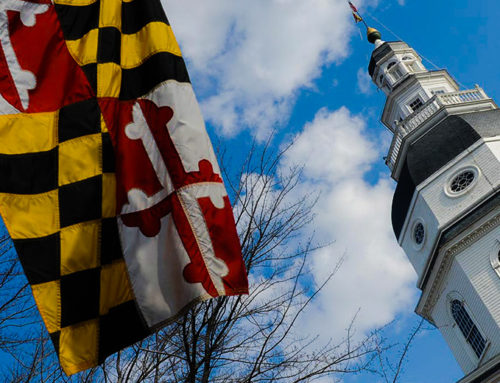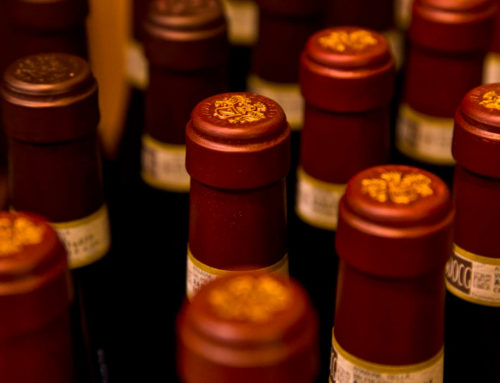View by Topic
Recent Articles
-
New Environmental Laws from the 2024 Maryland Legislative SessionSaturday, April 27th, 2024
-
EPA Designates PFOA and PFOS as Hazardous Substances under Superfund LawSaturday, April 20th, 2024
-
Federal Government Finalizes New Efficiency Standards for LightbulbsSaturday, April 13th, 2024
-
2024 IECC is Final After Addressing Preemption IssuesSaturday, April 6th, 2024
-
Settlement Portends Broad Failure in Attempts to Ban Natural GasSaturday, March 30th, 2024
View by Month/Year
“Green Building Law Update” Headlines
Recent Articles & News from
Stuart Kaplow’s blog
at GreenBuildingLawUpdate.com
- New Environmental Laws in Maryland: 2024 Brings Opportunities for Businesses April 28, 2024
- EPA Takes Action: PFOA and PFOS Now Hazardous Substances Under Superfund Law April 21, 2024
- Shedding Light on the Future: The Evolution of Lightbulbs in the Wake of New Energy Efficiency Standards April 14, 2024
- 2024 International Energy Conservation Code is Final After Addressing Preemption April 7, 2024
Subscribe to the Green Building Law Update!
Stuart Kaplow brings his expertise and extensive experience to the table with his unique digital publication, "Green Building Law Update". Subscribers receive regular updates to keep them informed about important issues surrounding Environmental Law, Green Building & Real Estate Law, as well as the emerging demand for Environmental Social Governance (ESG).
Get fresh content through the lense of Stuart Kaplow's cutting-edge expertise, innovative commentary and insider perspective. Don't miss another issue! Subscribe below.
Light, Liberty And Pursuit Of The Regulation Of Light In Baltimore County
As I sat listening to the chamber of commerce considering Baltimore County government’s proposal to legislate a reduction in outdoor lighting, I couldn’t ignore an historical irony: the debate was taking place on June 29, 2001, precisely 200 years to the day, from the birth of Frederic Bastiat.
For those who don’t know, Claude Frederic Bastiat was born in the southwestern French port city of Bayonne in 1801. A member of the French liberal or laissez-faire school of economists, Bastiat is regarded by many as the pioneer of free market capitalism, influenced by Locke and Rousseau, and the tenets of 18th Century liberalism that also influenced the authors of the United States Constitution.
Bastiat is best known for his torrent of essays and pamphlets that deftly exploded the governmental fallacies of his day.
His most famous essay, “A Petition,” first came to mind as I pondered the County’s proposal to legislate light. In “A Petition,” the candle makers of France petitioned for relief from the “ruinous competition of a foreign rival who works under conditions so far superior to our own for the production of light that he is flooding the domestic market with an incredibly low price.” The rival? The sun. The remedy requested? A law requiring the shuttering of all windows and the closing of all blinds to shut out the sunlight thus stimulating the domestic candle industry.
Might it be that maybe, just maybe, the solution to outdoor light trespass in Baltimore County is not regulating outdoor lighting at the source but, rather, requiring the mandatory shuttering of all windows and the closing of all blinds to shut out the light source – both the natural sunlight and the more offending artificial light bulbs?
And then there’s Bastiat’s “Broken Window Fallacy,” which oddly enough also seems to apply to the proposed law on light.
Bastiat begins the story with a boy who has broken a window. An onlooker points out the silver lining of the boy’s mischief: the glazier who will repair the window will earn six francs plying his trade; he in turn will spend this new income, generating additional business for yet others. The single broken window could ultimately create a boom.
To which Bastiat protests, “that will never do.” What the analysis does not take into account is how the money would have been spent if the window had not been broken. The broken window doesn’t increase spending; rather it diverts six francs from the window owner (who is now that much poorer) to a window glazier (who is that much enriched).
Obvious? Sure. But we fall for a version of the Broken Window Fallacy every time we evaluate the impact of a government regulation without considering what citizens would have done with the money now required to be spent complying with that regulation. If business owners are now required to bear the cost of replacing each and every outdoor lighting fixture and light bulb throughout the County (as the proposed regulation would mandate), what might those funds no longer be available for?
Bastiat was neither the first nor the last political economist to recommend a free society. Adam Smith was certainly better known. But Bastiat emphasized that government interference with the marketplace, no matter how well intentioned, has diverse affects. To fully understand this, we must look beyond immediate effects to the secondary, “unseen consequences.” Only if we take that fuller look can we discover whether that government policy is or is not a “legal plunder” benefiting the few at the expense of the many.
Is it possible that the issue is far more perverse than the reduction of lumens and the cost of complying with that mandate, and that the “unseen consequence” of a much darker Baltimore County will be an increase in crime? And, at a time when the nation is facing electric blackouts and an energy crisis, the proposed mandatory reduction in foot candles ignores and is oddly silent on any issue of electricity conservation.
The purpose here is not to postulate an answer to the debate over the benefits of more light or less light, sunlight or moonlight? But missing from the government’s rush to enact some sort of lighting law is a logic and clarity in the cause of understanding the full effects on the citizens of Baltimore County.









